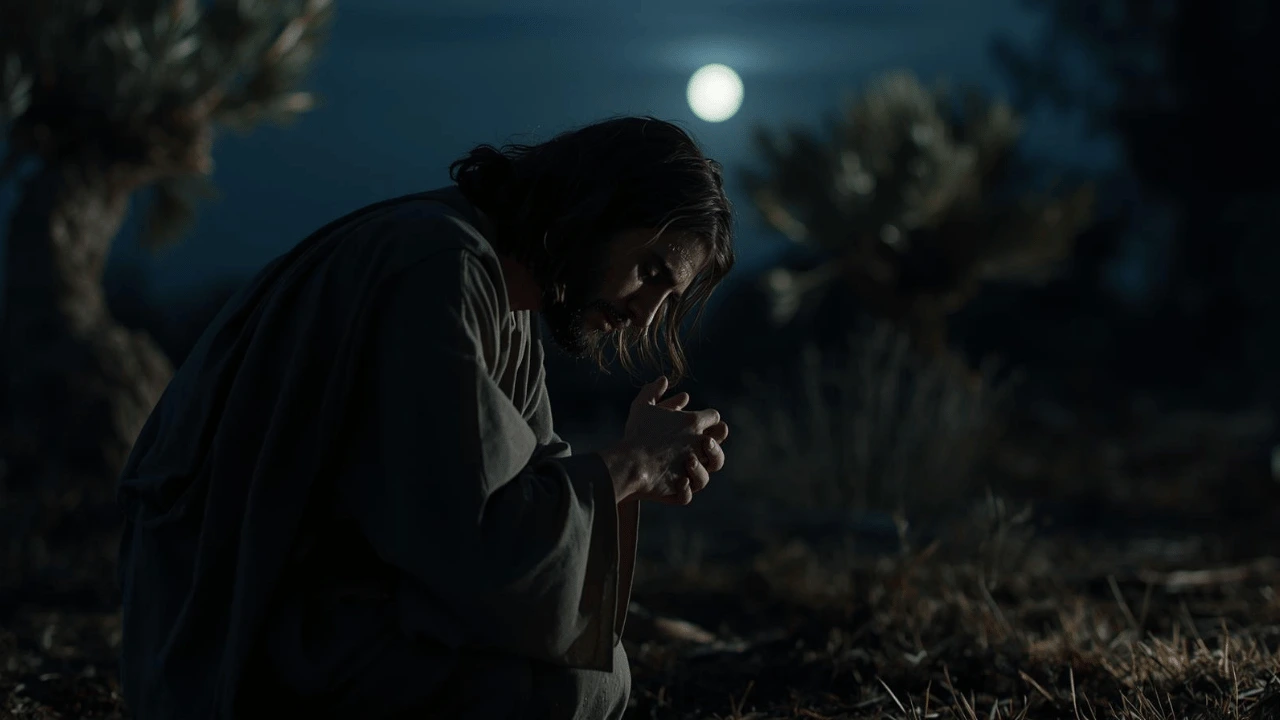When Familiar Stories Hide Shocking Truths
Most people think they know who Jesus was — a kind teacher, a miracle worker, a Messenger who preached love and forgiveness. But when you Study the Bible itself, you realize Jesus often did things that defied expectations, challenged traditions, and upended human logic.
In fact, some of the most astonishing moments of His life are the ones we rarely talk about — the moments that make us pause and say, “Wait, Jesus really did that?”
1. Jesus Broke Religious Rules
When we think about Jesus, we often imagine Him as gentle and compliant. Yet, one of the most surprising truths about Jesus is that He regularly broke religious rules — and He did it deliberately.
Defying the Sabbath Traditions
In several Gospel accounts, Jesus heals people on the Sabbath — something religious leaders considered a major violation. When confronted, Jesus responded with logic:
“The Sabbath was made for man, not man for the Sabbath.” (Mark 2:27)
This wasn’t rebellion for rebellion’s sake. Jesus wasn’t anti-law; He was pro-humanity. He reminded everyone that God’s laws were meant to serve people, not enslave them.
It was a revolutionary idea — and it still challenges legalistic thinking today.
Touching the Untouchable
Leprosy was considered contagious and spiritually “unclean.” Yet Jesus didn’t just heal lepers from afar; He touched them (Mark 1:41).
That one gesture — a hand on diseased skin — shattered centuries of fear-based boundaries. It declared that compassion outweighs contamination, and love crosses every human barrier.
2. Jesus Showed Anger

It surprises many to learn that Jesus, who preached peace and forgiveness, also displayed righteous anger. But His anger wasn’t about pride or ego — it was about justice.
Flipping Tables in the Temple
In one of the Bible’s most vivid moments, Jesus stormed into the Temple, drove out the money changers, and overturned their tables (John 2:13–17).
Why? Because people had turned a sacred space into a marketplace. His fury wasn’t a loss of control — it was a holy protest against hypocrisy and exploitation.
Jesus reminded everyone that faith without integrity is empty — and worship without justice is noise.
Calling Out Hypocrisy
Jesus didn’t mince words with the religious elite. He called the Pharisees “whitewashed tombs” (Matthew 23:27) — outwardly pure but inwardly corrupt.
That’s shocking language coming from someone known for kindness. But it shows that real love sometimes confronts instead of comforts. Jesus’ truth wasn’t always gentle — but it was always good.
3. Jesus Valued Women in a Radical Way
In the first century, women had almost no social power. Yet Jesus repeatedly broke cultural norms to affirm their dignity and worth.
Speaking to the Samaritan Woman
When Jesus spoke with a Samaritan woman at the well (John 4), He broke three taboos at once: He spoke to a woman, a Samaritan, and a moral outcast.
But instead of shaming her, He engaged her in deep theological conversation — making her one of the first people to hear that He was the Messiah.
In that single interaction, Jesus showed that God’s love isn’t limited by gender, race, or reputation.
Women as Witnesses
When Jesus rose from the dead, the first witnesses were women (Matthew 28:1–10). In a world that dismissed female testimony, this detail was scandalous — and significant.
The Gospel writers didn’t hide it, which speaks volumes. It’s as if God intentionally turned the system upside down to prove that everyone matters in His kingdom.
4. Jesus Befriended the “Wrong” People
If social media had existed back then, Jesus’s friend list would have shocked everyone. He surrounded Himself with tax collectors, sinners, fishermen, and even zealots.
Dining with Sinners
When Jesus ate with tax collectors like Matthew and Zacchaeus, the religious elite were outraged. Sharing a meal meant acceptance — and Jesus seemed too accepting.
But He replied,
“It’s not the healthy who need a doctor, but the sick.” (Luke 5:31)
That single sentence captured His mission: not to judge, but to heal.
Choosing Flawed Disciples
The men Jesus chose as disciples weren’t scholars or saints. They were ordinary, flawed people — impatient, doubtful, sometimes cowardly.
Yet Jesus looked beyond their weakness and saw potential. It’s a reminder that God doesn’t call the qualified; He qualifies the called.
5. Jesus Redefined Power and Greatness
In a world obsessed with dominance, Jesus introduced an upside-down vision of greatness — one rooted in humility and service.
Washing His Disciples’ Feet
On the night before His death, Jesus did something unthinkable: He knelt down and washed His disciples’ dirty feet (John 13:1–17).
This wasn’t symbolic — it was a real act of servanthood. And when He said, “Do as I have done to you,” He flipped the world’s power dynamics forever.
True leadership, He showed, begins with humility.
Entering Jerusalem on a Donkey
When kings entered cities, they rode warhorses. Jesus rode a donkey — a symbol of peace.
That quiet, humble entry said everything about the kind of kingdom He was building: not one of domination, but of compassion.
6. Jesus Experienced Human Emotions

Many people imagine Jesus as emotionally detached, but the Gospels show a profoundly human side — one that weeps, grieves, and feels pain.
Weeping for a Friend
When Lazarus died, Jesus wept (John 11:35). That short verse — the shortest in the Bible — reveals something profound: even knowing He would raise Lazarus, Jesus still felt the sting of human loss.
It tells us that empathy isn’t weakness; it’s divine.
Sweating Blood in Gethsemane
Before His crucifixion, Jesus prayed in agony, sweating drops of blood (Luke 22:44). It’s one of the rawest moments in Scripture — a glimpse into divine vulnerability.
He wasn’t pretending to be brave; He was showing that courage and fear can coexist — and that love sometimes walks through pain.
7. Jesus Forgave While Being Crucified
This might be the most shocking act of all. As Roman soldiers nailed Him to the cross, Jesus said,
“Father, forgive them, for they know not what they do.” (Luke 23:34)
Forgiving your executioners — that’s not just mercy; that’s divine transcendence.
It wasn’t passive resignation; it was active, radical love. He broke the cycle of revenge at its ugliest point — and changed history forever.
8. The Resurrection
Even people who don’t believe in Christianity can’t deny that the Resurrection claim changed the world.
The Evidence and Impact
Eyewitness accounts, transformed disciples, and a global faith built on a crucified Messiah — these are historically unparalleled.
The Resurrection wasn’t just a comeback; it was the ultimate proof that love is stronger than death.
For a deeper look into the historical evidence of Jesus’s resurrection, reputable scholars like N.T. Wright and Gary Habermas have written extensively (see N.T. Wright’s work here).
The Jesus We Thought We Knew
So, did Jesus really do this — break rules, defy norms, challenge power, elevate the marginalized, forgive the unforgivable?
Yes. And the Bible’s answer may surprise you, not because it contradicts what we know — but because it deepens it.
Jesus wasn’t “nice” in a soft, safe sense. He was good — in the fierce, fearless, world-changing sense of the word.
He didn’t come to fit into our expectations. He came to redefine reality. And that’s why His life still turns the world upside down — one heart at a time.


2 thoughts on “Did Jesus Really Do THIS? The Bible May Surprise You!”